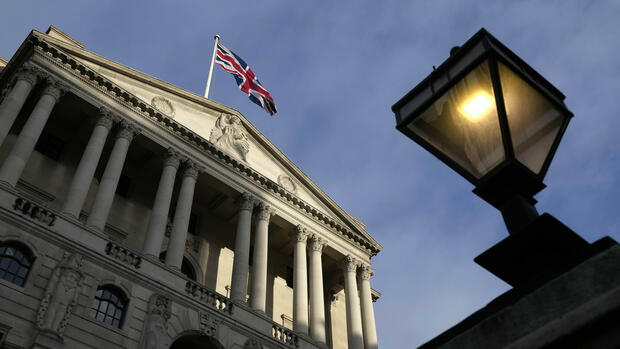London Britain’s top bankers are getting a lot to hear these days. Just two weeks ago, Treasury Secretary Jeremy Hunt summoned the chief executives of the UK’s leading banks. On Thursday, the top bankers were again asked for a report – this time by the British financial regulator, the Financial Conduct Authority (FCA).
Hunt wanted to persuade the bank bosses to ease the burden of the sharp rise in mortgage rates for almost eleven million homeowners. The FCA, in turn, spoke to them about interest rates on savings, which the Conservative government in London believes are not rising fast enough. British savers can therefore hope for improvement.
The talks with the banking sector seem necessary, because many Britons are in an interest rate trap: In view of the persistently high inflation – in May consumer prices still rose by almost nine percent – the Bank of England is gradually increasing the key interest rate to five percent.
This, in turn, is driving up mortgage rates: rates on the two- and five-year home loans popular in the UK have risen to over 6%.
Average overnight interest rates at British banks, on the other hand, were just under 2.4 percent, according to the Moneyfacts consumer platform. “Some big banks pay less than 1 percent interest, while most people should earn at least 4 percent,” says consumer advocate Martin Lewis.
>> Read here: Britain is stuck in a vicious circle of inflation
This interest margin boosted the interest income of big banks like Barclays and Lloyds by around a fifth in the first quarter. This is a political nuisance for the Tories, who are worried about their re-election: Finance Minister Hunt complained that it was taking “too long” for British savers to benefit from the high interest rates. “It’s a problem that needs to be solved,” he said in the House of Commons.
His party colleague Harriet Baldwin, chairwoman of the Finance Committee, is clearer: Since the beginning of the year, it has been noticed “that the banks have not passed on interest rate increases to savers as much as they have to mortgage holders”.
The Finance Minister is campaigning for higher interest rates on savings.
(Photo: dpa)
Labor MP Angela Eagle has spoken of “blatant profiteering” by the banks and has lodged a complaint with the FCA along with the other members of the Finance Committee. The new consumer protection rules now give financial regulators leverage to punish those banks that enrich themselves at the expense of their customers.
>> Read here: When will interest rates peak? Markets are already expecting the first reductions
In view of the heated political discussion, British banks fear new state interventions such as an excess profit tax, which already exists for large energy companies. In addition, the state could take a close look at competition between banks. “The FCA has a competition law obligation. No doubt she is carefully reviewing this in the context of the recent allegations,” said former antitrust watchdog Andrew Tyrie.
The banks point out that their net interest margins have not risen at an unusually high rate in historical comparison. In fact, a study by the FCA last year shows that margins have steadily declined in previous years. “If we wanted to pay savers more, we would have to charge more to mortgage borrowers,” said Eric Leenders of industry association UK Finance.
In addition, the banks emphasize that they already offer their customers fixed-term deposits with significantly more attractive interest rates, which can reach up to six percent, depending on the investment period and investment. The FCA encouraged UK savers to be on the lookout for the best deals: “We are increasingly seeing customers switching their savings products to higher interest products,” the regulator said.
Interest rates in Great Britain should continue to rise
The financial information service Bloomberg has calculated that British households have so far benefited from the interest rate hikes by around ten billion pounds (about 11.7 billion euros) thanks to fixed-term savings. However, if around 1.4 million Britons have to reschedule their mortgages at significantly higher interest rates by the end of the year, this will turn the tally to their disadvantage.
Especially as the yield curve in Great Britain continues to point upwards. Investors in the financial markets are now pricing in a further increase in key interest rates to 6.5 percent by March next year. Allan Monks, an economist at the US bank JP Morgan in London, even considers it possible that interest rates could rise to seven percent. This would also increase the political pressure on the banks’ interest margins.
But investors also benefit: the British government had to offer its two-year government bonds at a yield of almost 5.7 percent on Thursday – this is the highest level in 16 years.
More: Liechtensteinische Landesbank attracts German savers
